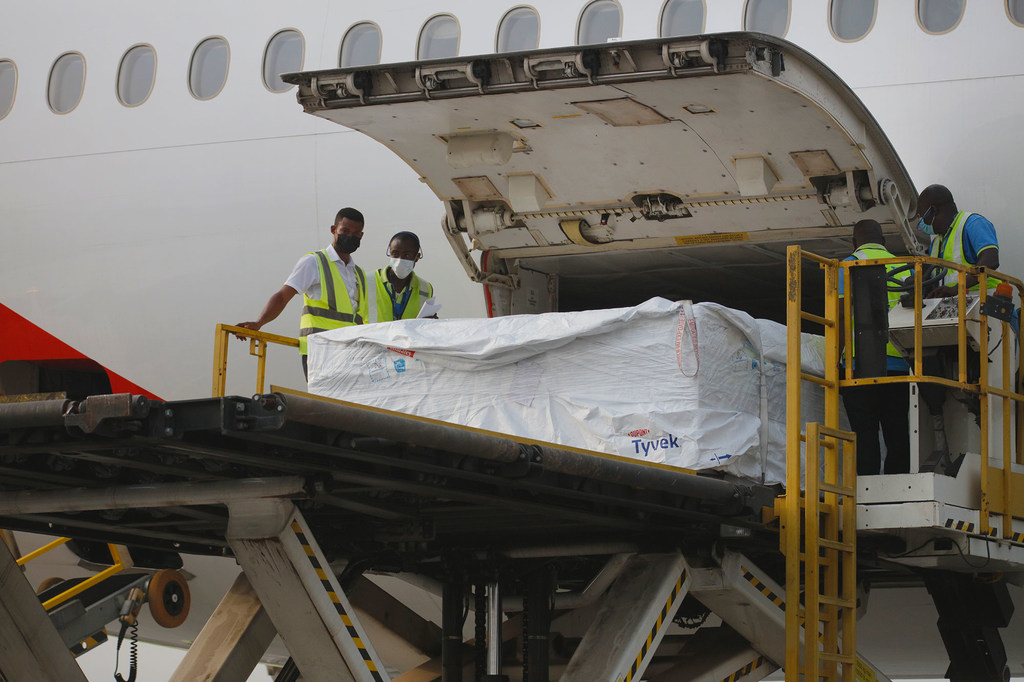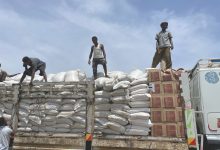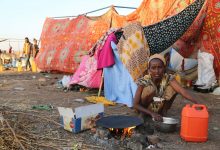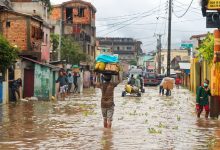Ghana receives first historic shipment of COVID-19 vaccinations from international COVAX facility
 Six hundred thousand doses of lifesaving COVID-19 vaccine from the UN-partnered COVAX initiative have arrived in Ghana: a historic first for the international partnership to provide equitable innoculations for all.
Six hundred thousand doses of lifesaving COVID-19 vaccine from the UN-partnered COVAX initiative have arrived in Ghana: a historic first for the international partnership to provide equitable innoculations for all.
Confirming the news on Wednesday, the World Health Organization (WHO) said that further supplies of the AstraZeneca/Oxford jab will reach Côte d’Ivoire later this week.
These are the first coronavirus shots from the COVAX scheme to be distributed outside India, where the vaccine is being produced under licence.
They were shipped from Mumbai to the Ghanaian capital, Accra, by the UN Children’s Fund (UNICEF) as part of the first wave of vaccines headed to several low and middle income countries.
UNICEF Executive Director Henrietta Fore described their arrival as “the historic moment for which we have been planning and working so hard”, as the world ramps up the largest immunization campaign in history.
“With the first shipment of doses, we can make good on the promise of the COVAX Facility to ensure people from less wealthy countries are not left behind in the race for life-saving vaccines,” she said.
Further supplies will be shipped to other nations as the global rollout gathers pace, when readiness criteria have been met and the doses produced.
Only the beginning
Tedros Adhanom Ghebreyesus, the WHO Director General, welcomed the development, along with COVAX partners Gavi, the Vaccine Alliance and the Coalition for Epidemic Preparedness Innovations (CEPI).
But he insisted that there was still “a lot of work to do” to secure support for WHO’s goal of giving the vaccine to all health workers and older people in the first 100 days of the year.
“We will not end the pandemic anywhere unless we end it everywhere,” the WHO chief said in a joint statement.
“Today is a major first step towards realizing our shared vision of vaccine equity, but it’s just the beginning. We still have a lot of work to do with governments and manufacturers to ensure that vaccination of health workers and older people is underway in all countries within the first 100 days of this year.”
Vaccine development ‘crucial’
Echoing the urgent need for universal vaccine distribution, Dr Richard Hatchett, Chief Executive Officer at CEPI, noted that there were now “multiple safe and effective vaccines against COVID-19 developed in record time”.
But the “increased spread” of COVID-19 variants had ushered in a “new and less predictable phase of the pandemic”, Dr Hatchett insisted. “It is crucial that the vaccines we have developed are shared globally, as a matter of the greatest urgency, to reduce the prevalence of disease, slow down viral mutation, and bring the pandemic to an end.”
In an appeal for greater support for the initiative, which Dr Seth Berkley, head of fellow COVAX partner GAVI insisted that the delivery of vaccines to Ghana was a proud moment, but it had to be repeated “to all participating economies” in coming weeks, “to ensure that those most at risk are protected, wherever they live”.
Governments and businesses needed to “recommit” to COVAX, the Gavi chief insisted “and help us defeat this virus as quickly as possible”.
In order for new coronavirus doses to be delivered to COVAX participants, the criteria which need to be fulfilled include confirmation of national regulatory authorisations for the vaccine in question, national vaccination plans and export and import licences.
Decline in deaths
The development comes as WHO reported a drop in COVID-19 deaths for the third consecutive week.
Coronavirus Portal & News Updates
Readers can find information and guidance on the outbreak of the novel coronavirus (2019-nCoV) from the UN, World Health Organization and UN agencies here. For daily news updates from UN News, click here.
Some 66,000 deaths were reported last week, according to the UN agency’s latest update on the disease, which was issued on Wednesday.
WHO said deaths have fallen in all regions except the Western Pacific, which recorded a six per cent increase.
New infections also decreased by 11 per cent over the same period in four out of six regions. However, South-East Asia and the Eastern Mediterranean reported small increases of two per cent and seven per cent respectively.
Globally, there have been nearly 111 million cases of COVID-19 since the start of the pandemic, and more than 2.4 million deaths.
The United States, Brazil, France, Russia and India continue to report the highest number of cases.



